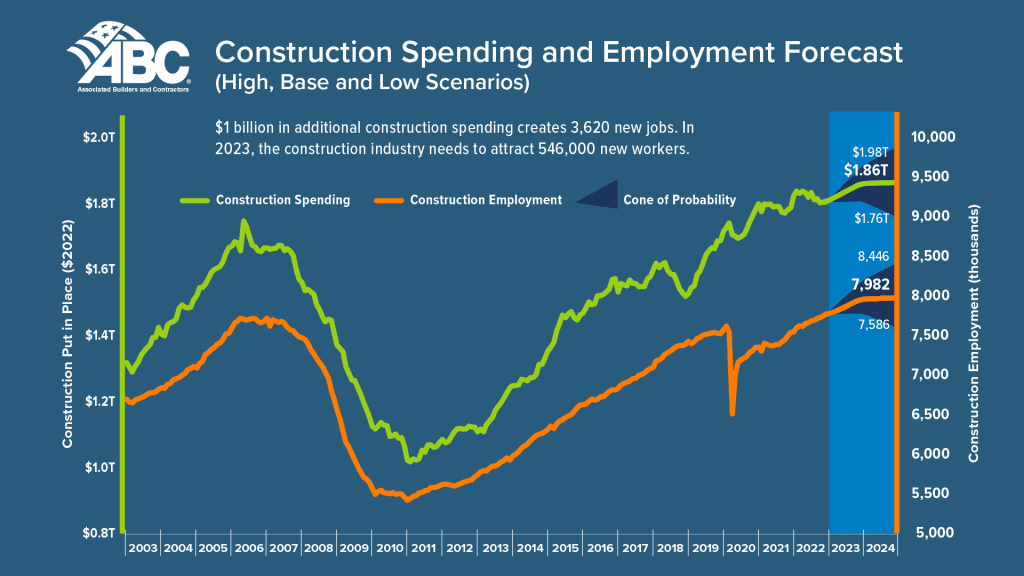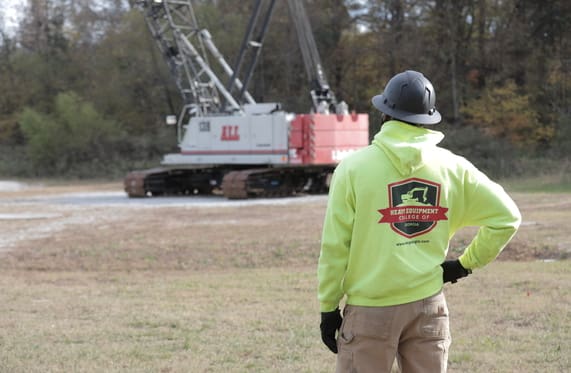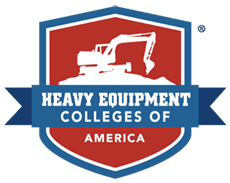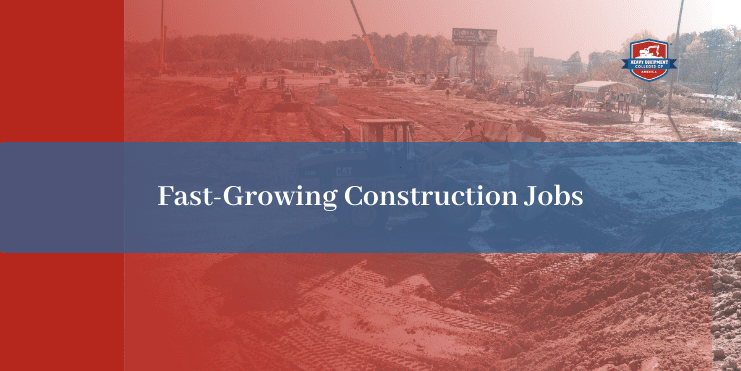When it comes to pursuing a career in the construction industry, it’s not just about choosing a job. It’s about choosing the right job one that offers benefits like job security, competitive pay, and career advancement opportunities.
If the construction industry is the right fit for you but you don’t know what jobs to consider, we’re here to help. Keep reading to learn about the construction industry as a whole as well as the fastest-growing jobs within it.
Table of Contents
Construction Industry Outlook: Workforce Shortage Tops Half a Million in 2023
Although the demand for various construction jobs is growing year over year, the number of skilled workers available to fill those positions is on the decline. Employers are struggling to find not only workers but skilled workers, in large part due to an aging workforce and a lack of young talent joining it. Young workers who join the workforce are often less skilled than their retiring counterparts and, thus, less efficient.
The unemployment rate for the construction industry was 4.6% in 2022, the second lowest ever recorded. While a low unemployment rate might seem like an upside, it’s not in this case. A low unemployment rate during a labor shortage means that not enough qualified workers are available to fill positions, which reduces productivity across the industry.
Between the lack of skilled workers, an aging workforce, and a low unemployment rate, ABC (Associated Builders and Contractors) projects that the construction industry will need to hire roughly 546,000 new workers in 2023 and 342,000 new workers in 2024 just to meet the current labor demand.

Fast-Growing Construction Jobs
1. Equipment Operators
Construction equipment operators operate heavy machinery that’s used to build roads, buildings, and other structures. They can operate everything from bulldozers and backhoes to excavators and trenches and everything in between.
With various types of equipment available that require skilled operators, this sector of the construction industry is experiencing rapid growth. In fact, the Bureau of Labor Statistics estimates that the demand for construction equipment operators will grow by 5% annually through 2031. This rate increase equates to roughly 50,800 new jobs each year.
Related Article: How To Become a Heavy Equipment Operator
2. Construction Workers
Every construction site involves tasks that heavy machinery simply can’t complete. They require skilled workers to perform manual labor like assembling components and performing maintenance checks. The demand for construction workers is expected to increase by 4% annually through 2031, which comes out to roughly 168,500 new job openings each year.
3. Crane Operators
One of the most popular types of heavy equipment on a construction site is a crane. Cranes can be mobile or fixed, with each category including various crane sub-types. Cranes are especially difficult to operate because they contain what’s called a boom, which is either a fixed or hydraulic arm attached to the cab that extends to lift and transport various sized loads. Cranes pose a greater safety risk than other machinery types because they’re taller and lift loads higher. As a result, they require particularly skilled operators to maintain a safe work environment.
Related Article: How Proper Crane Rigging Ensures a Job Done Right
4. Civil Engineers
Civil engineers play a key role in the construction industry. They’re the ones who plan, design, and oversee the entire project, whether it’s for a building, road, bridge, or something else. These professionals also analyze survey reports, test construction materials, and estimate the project’s cost. Since civil engineering positions require a college degree which involves a significant investment of time and money that many people can’t or aren’t willing to afford they remain in high demand.
Get trained in as little as 3 weeks!
Skilled Heavy Equipment Operators Are in High Demand
But don’t worry. A labor shortage isn’t all doom and gloom. A labor shortage is a great opportunity for people entering the workforce for the first time or switching careers to take advantage.
With a growing number of residential and commercial construction projects popping up across the country, more and more jobs are becoming available. But employers don’t just want to hire just anyone to fill empty roles. They want skilled workers who know the industry, know how to operate various types of equipment, and have hands-on training under their belts.
The more training workers receive, the better work they will perform on the job site. They’ll also know how to keep themselves and other workers safe from common workplace hazards, which protects employers from potential litigation.
Top 3 Benefits of Heavy Equipment Training

- Job Opportunities: Construction crews nationwide need skilled heavy equipment operators. Once you complete a training program, you can find a job practically anywhere you want to go.
- Job Flexibility: Since construction jobs are available across the country, heavy equipment operators can move cities without having to switch careers.
- Job Security: Thanks to a steady growth rate for construction jobs through 2031, heavy equipment operators can look forward to continued job security once they land a job.
Find a Heavy Equipment Training Program Near You
Finding a job in the construction industry starts with completing a certified training course. Heavy Equipment Colleges of America (HEC) has the programs you need to take your career to the next level. With training locations in Georgia, Oklahoma, California, and Washington, getting started has never been easier. Learn more about our programs to see which one is right for you.

